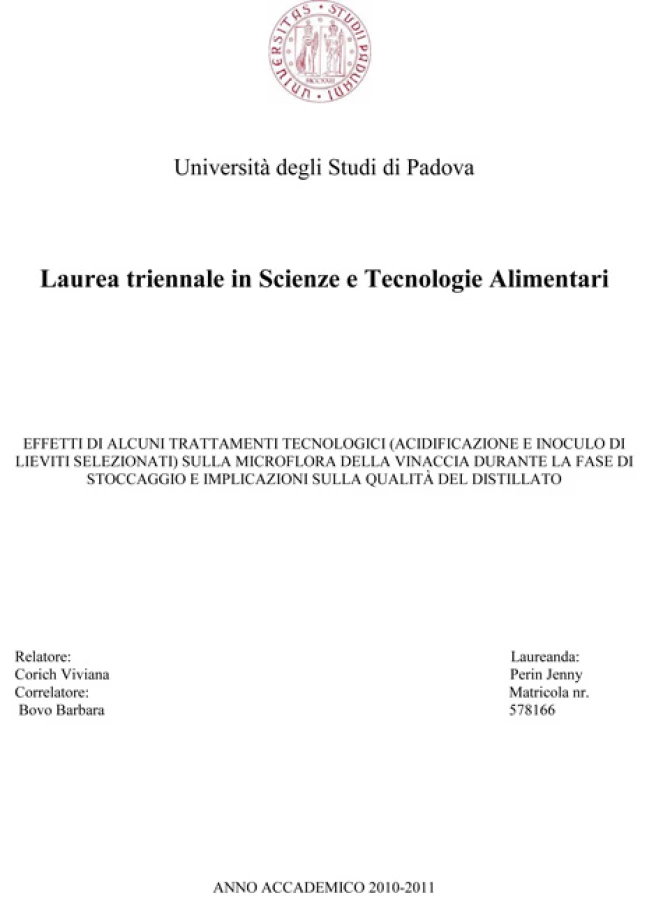Effetti di alcuni trattamenti tecnologici (acidificazione e inoculo di lieviti selezionati) sulla microflora della vinaccia durante la fase di stoccaggio e implicazioni sulla qualità del distillato
Description:
"Effects of some technological treatments (acidification and inoculation of selected yeasts) on grape marc microflora during storage andimplications for distillates quality"
This thesis looks at the effect of two technological treatments on grape marcs destined for Grappa production.
The first was an acidification treatment, frequently used by distilleries to control the proliferation of bacterial populations, the second involved the inoculation of a selected yeast strain, chosen from a wide pool of strains collected during previous experiments. In the first case, the comparison was between untreated grape marcs and grape marcs acidified to pH 2.9 at the time of storage, a crucial phase for obtaining a good distillate. The microflora present was isolated at three sampling times (T0, after 15 days and at the end of the storage period), and showed that the acidification treatment does indeed allow to control bacterial populations.
Gas-chromatographic analyses of distillates obtained in the lab at the end of the ensilage period showed that in untreated grape marcs the concentration of aromatic compounds was higher than in acidified grape marcs.
As for the inoculation of the yeast strain (Saccharomyces cerevisiae), population dynamics monitored at three sampling times proved that there was no substantial difference between control and inoculated group. Molecular analysis tests confirmed the presence of the yeast strain after it was introduced at the time of storage and for up to 15 days.
-
If you wish to download the entire document, please send a request to info@grappa.com specifying the title of the text you wish to receive, the reason for this request and full applicant details.
Thank you.
POLI GRAPPA MUSEUM
Biographical Notes:
Photogallery:
Request Document
To download the entire document, please send a request by filling out the form.
The fields marked with (*) are mandatory
Download Document
Log in to access reserved documents.


